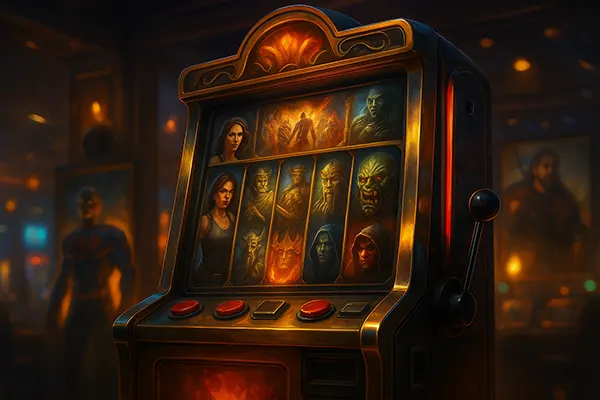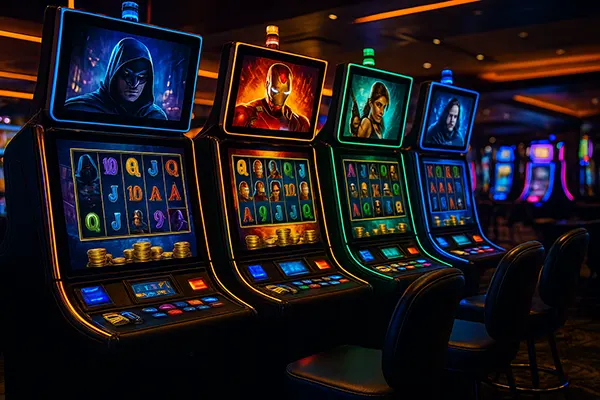Casino bonuses look simple on the surface: you accept an offer, play, and hope to withdraw more than you deposited. The problem is that two bonus mechanics — “sticky bonus” and “non-cashable bonus” — regularly confuse players because they both restrict what you can cash out. In practice, they behave differently, and misunderstanding the difference is one of the most common reasons people lose part of their balance or see winnings reduced at withdrawal. This guide breaks down how each bonus type works in 2025, what to look for in the terms, and how to protect your money before you click “claim”.
What a Sticky Bonus Actually Means (and Why It Changes the Withdrawal Math)
A sticky bonus is a bonus amount that stays attached to your balance while you play, but it is not meant to be withdrawn as cash. Your own deposit money is withdrawable (subject to wagering rules), but the bonus portion is “stuck” inside the account. It supports your play, yet it remains restricted until specific conditions are met — and in many offers, it is never paid out directly.
In 2025, sticky bonuses are most commonly used in matched deposit offers and some cashback formats where the casino wants to give you extra “play power” without increasing direct withdrawable value. The key point is that the sticky bonus can influence how your balance behaves during play: you might win while the bonus is active, but the bonus rules may decide what part of those winnings you are allowed to keep when you request a payout.
The biggest practical risk is that sticky bonuses often come with withdrawal caps or conversion rules. For example, a casino can allow you to withdraw only a certain maximum multiple of the bonus (such as 3x, 5x, or 10x the bonus amount), even if your gameplay results in more. That means you could technically “win big” on screen, but still be limited by the bonus terms when you try to cash out.
How Sticky Bonuses Interact with Your Deposit and Winnings
With a sticky bonus, your balance is usually treated as a combined pool, but not all parts of it are equal. Your deposit is typically the part you can withdraw after you meet wagering requirements, while the bonus itself remains locked. However, when you place bets, the casino can decide the order in which funds are used — sometimes bonus funds are used first, sometimes your cash is used first, and sometimes it depends on the game category.
This matters because if you request a withdrawal while the sticky bonus is still attached, the casino may remove the bonus and may also remove a portion of winnings that were generated while that bonus was active. Many terms describe this as “bonus and winnings removal on withdrawal”. It is not the same everywhere, so you should always check the exact wording, not assume the rule is universal.
A good way to think about it is this: the sticky bonus is often designed to give you a longer playing session and a better chance to reach wagering targets, but it can come at the cost of flexibility. If you like to withdraw quickly when you’re ahead, sticky bonuses can be a poor match unless the terms clearly allow withdrawal without losing bonus-related winnings.
What a Non-Cashable Bonus Means (and How It Differs from Sticky)
A non-cashable bonus is a bonus that cannot be withdrawn as money, but it can generate withdrawable winnings once certain requirements are met. This is the crucial difference. The bonus itself stays non-cashable, yet what you win with it can become real cash after you finish wagering and comply with all restrictions.
In modern bonus systems (especially in 2025), non-cashable structures are widely used for bonus funds, free spins converted to “bonus money”, and some promotional credits. Casinos prefer this approach because it prevents players from instantly withdrawing the bonus itself while still allowing the promotion to feel meaningful. The player’s benefit is that winnings can become withdrawable if they follow the rules.
Non-cashable bonuses often come with a defined “conversion” moment: once you complete wagering, the bonus is removed and the remaining eligible winnings become cash (or the balance becomes cash-only). This is usually more straightforward than sticky bonuses — but only if you understand caps, game restrictions, and the exact wagering contribution rules.
Common Non-Cashable Bonus Rules That Catch Players Off Guard
The first trap is the maximum cashout. Many non-cashable offers limit what you can withdraw from bonus-generated winnings. A typical example is “max withdrawal equals 5x bonus” or a fixed amount like £200/€200 depending on the casino’s currency rules. If you don’t notice the cap early, you may play in a way that exposes you to disappointment later.
The second trap is the restricted game list. A non-cashable bonus might look usable across the casino, but the wagering contribution can vary widely. Slots might contribute 100%, while roulette, blackjack, and live dealer titles might contribute 10% or 0%. If you play mostly games with low contribution, you can end up wagering far more than expected, or fail the requirements entirely.
The third trap is the bet size limit. In 2025, many casinos enforce a maximum stake per spin or per hand during bonus wagering (for example £5 per spin). If you exceed it — even once — the casino may void the bonus and any related winnings. This is one of the most common reasons for confiscated balances, and it can happen without the player noticing during a fast session.

How Not to Confuse Sticky vs Non-Cashable: A Practical Checklist Before You Claim
If you remember only one thing, make it this: sticky bonuses usually stay attached and can be removed along with some winnings when you withdraw early, while non-cashable bonuses are removed after wagering but can still produce withdrawable winnings. The quickest way to identify which type you’re dealing with is to read how the casino describes withdrawal. Phrases like “bonus funds cannot be withdrawn and will be removed on withdrawal” often indicate sticky behaviour, while “bonus is non-cashable, winnings become cash after wagering” signals a more classic non-cashable structure.
Before claiming any offer, look for three numbers: the wagering requirement, the maximum withdrawal, and the time limit. In 2025, time limits are often between 7 and 30 days, and some offers are even shorter. If you cannot realistically complete the wagering in the time provided, it may be smarter not to take the bonus at all, because incomplete wagering often leads to forfeiting bonus-related winnings.
Also check how the casino handles withdrawal requests during wagering. Some places automatically cancel the bonus if you try to withdraw, which can be acceptable if you understand the consequences. Others may allow partial withdrawals but adjust your balance according to bonus rules. The difference can be the difference between keeping your profit and losing a large portion of it.
Smart Ways to Protect Your Balance When Playing with These Bonuses
First, separate your goals. If you want quick withdrawals and short sessions, avoid sticky mechanics unless the casino clearly states you can withdraw winnings without losing them. If you prefer longer sessions and don’t mind conditions, a sticky bonus can be fine — but only if the cashout cap and game restrictions are reasonable for your bankroll.
Second, keep your stakes consistent and within the allowed limits. If the terms set a maximum bet during wagering, treat it as a strict rule, not a suggestion. Many casinos enforce this automatically, and in 2025 they increasingly use automated checks rather than manual reviews, which means violations are less likely to be forgiven.
Third, document what you accept. Take a quick screenshot of the key bonus terms at the moment you claim the bonus: wagering requirement, max cashout, eligible games, and bet limits. Casinos can update their terms over time, and having proof of what was offered when you opted in can help if you need to raise a dispute with support or, where applicable, with the relevant licensing body or alternative dispute resolution service.



















